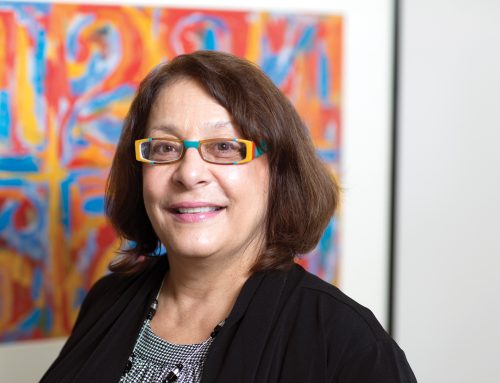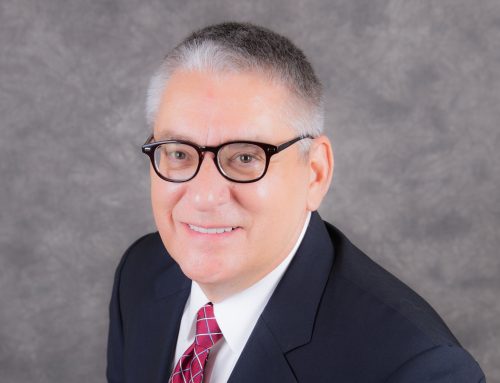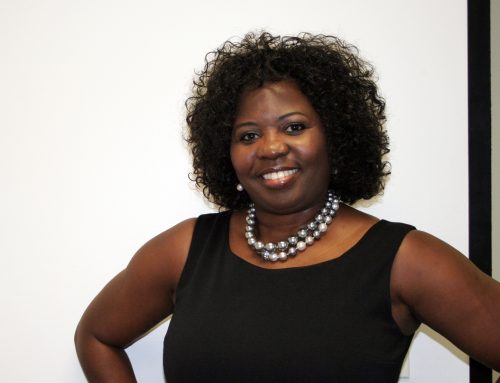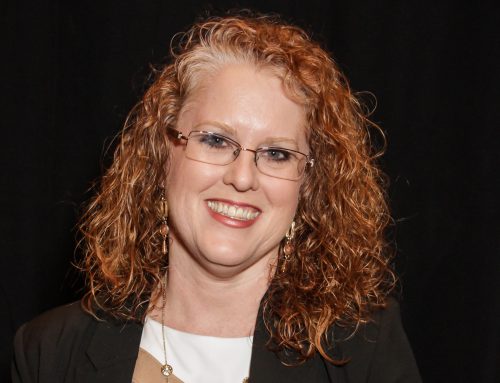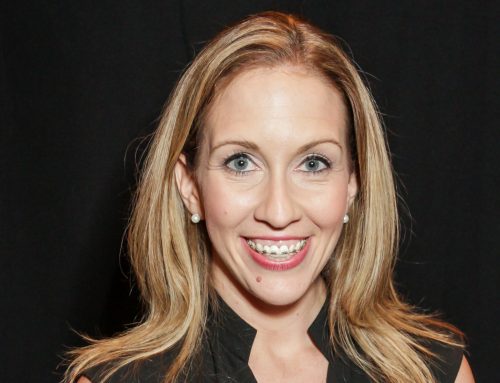2015 Gold Medalist ~ Clinical Education
Millie Toth, MS, RN, AOCN, The University of Texas MD Anderson Cancer Center
A nurse for 47 years, Millie Toth has spent the last 14 as a senior nursing instructor for The University of Texas MD Anderson Cancer Center. During those years, she has been recognized by her colleagues for her dedication, motivation, and enthusiasm for educational activities.
A few years after Millie received her bachelor’s degree from Orvis School of Nursing at the University of Nevada in Reno, she and her husband moved to Houston. In 1972 she received her Master of Science in medical-surgical nursing at The University of Texas Health Science Center at Houston School of Public Health, and accepted a position as clinical nurse instructor at Texas Woman’s University. By the time she left TWU in 1977, she was an assistant professor.
During the summers of 1973 and 1974, she was a clinical instructor for a summer program at MD Anderson sponsored by the American Cancer Society. “Nursing students from all over the country came to the program, which was designed to inspire nurses to get involved in oncology nursing,” she says. “One of the highlights of my career came a couple of years ago as a result of that program, while I was attending an Oncology Nursing Society conference in Seattle. A nurse came up to me and tapped me on the shoulder and said, ‘Millie Toth, you’re the reason I’m an oncology nurse.’ She told me she was one of my students at MD Anderson in 1973, and that she’s now a clinical nurse specialist in oncology. It made my year.”
Millie has a long list of contributions to oncology nursing. She is active in the Houston community through her role in the Houston Chapter of the Oncology Nursing Society (ONS), where she has served as president, as well as chair of the membership, nominating, education, and program vendor committees. She currently coordinates community outreach for the ONS and has frequently coordinated teams to participate in the American Cancer Society Relay for Life, where she provides community education on cancer topics. She has chaired the national Oncology Nursing Society Chemotherapy Special Interest Group and coordinates a certification preparation course for nurses in the Texas Medical Center. In addition to her work developing nursing education and orientation curricula, Mille served on the steering committee for the Great Houston Area Nursing Oncology Education Program, an organization sponsored by the Cancer Prevention and Research Institute of Texas. She is an ambassador in the MD Anderson Ambassador Program, serving as a speaker and health fair volunteer, and a certified Basic Life Support instructor by the American Heart Association.
In the past year Millie has played a pivotal role in an educational initiative that impacts nurses at cancer centers throughout the country. Historically, the Oncology Nursing Society has provided chemotherapy-biotherapy certification for nurses through a centralized education program, for which Millie was an instructor at MD Anderson. In January 2014, ONS transitioned the curriculum for their chemo-bio course to a four-week online class, but there were issues related to process, and the content was perceived as too advanced, particularly for new graduate or general oncology nurses.
Millie was appointed as the lead for what is now known as the National Cancer Institute Cancer Centers’ Chemotherapy Collaborative, which has engaged 16 major cancer centers whose representatives met in person and weekly through teleconferencing to develop a goal, objectives, measurable outcomes, and a curriculum for a revised two-day chemo-bio course. A new systematic approach allows nurses to learn about the indications for and administration of particular agents, the most common toxicities of the agents, and how best to manage them. The curriculum is in a pilot-testing phase.
“This education initiative demonstrates Millie’s impact not only on nurses here at MD Anderson, but throughout the country in developing educational opportunities that meet nurses’ and institutions’ needs,” wrote her nominator Kelly Brassil, PhD, RN, AOCNS, ACNS-BC, CNL, director of nursing research and innovation at MD Anderson. “The program has the potential to save significant money and the capability to meet diverse learning styles. As increasing numbers of educational initiatives transition to e-learning formats, Millie recognizes that some content critical to patient safety and outcomes requires a hybrid teaching approach to ensure that participant questions are answered and understanding is achieved. Her participation in this initiative has dramatically impacted oncology nursing education and contributed to MD Anderson’s leadership position in enhancing collaborative nursing education.”
Millie’s love for patients and their families drives her to become a better instructor. “What I love most about being a nurse is providing direct patient care,” she says. “As a clinical instructor I no longer have the opportunity to spend time at the bedside. Instead, I orient new graduates and other nurses to oncology nursing, polishing them up to become good quality nurses. Usually I tell them I’m picking their brains and polishing their synapses because I expect them to deliver the best patient care they can possibly give because our patients deserve that. Taking care of cancer patients is very important.”
She considers herself fortunate to teach a side effects course for patients once a week, which helps meet the need she has to network with patients and families. She also teaches a monthly class at the Rotary House, entitled Ask the Expert, offering patients the opportunity to talk with her about any issues they have.
“This is very rewarding for the patients and their families and for me,” she says. “Sometimes patients come with no family and no connections, and I’m able to network them through the system. It’s very rewarding to get emails about how they’re doing. It always makes me feel good to help a patient.”
She says making cancer history also keeps her motivated. “We can do more today than surgically remove cancer or give patients chemotherapy or irradiate them. Cutting-edge modalities target the changes in cancer cells that allow them to grow, divide, and spread. As researchers learn more about the cell changes that cause cancer, they’re better able to design new therapies that target the changes or block their effects. I’m thrilled to be able to help nurses learn more about the pathophysiology of cancer and about these new approaches to treatment so that they can in turn educate their patients.”
Millie says she’s learned from her patients to appreciate the small things in life. “To hear the crickets chirp, to hear people sing, to stop and enjoy the sunrise and the sunset – all of these are blessings from God.”
